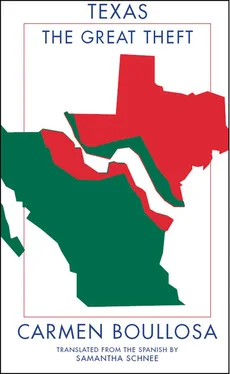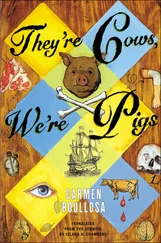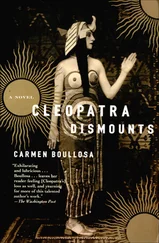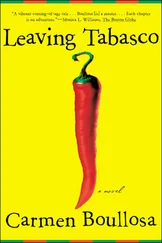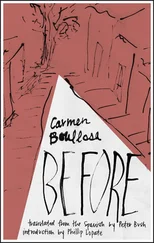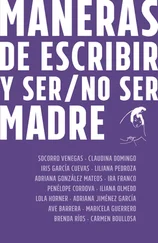Carlos the Cuban arrives in New York, where we lose track of him, all we know is that he joins a group of Free Cuba activists.
The Coal Gang pulls off a major heist, which entitles them to the crown formerly held by the Robins.
The Mexicans take Nepomuceno prisoner once more.
Dozens of Confederate parties escape to Mexico. Most are penniless, their possessions have been taken, stolen, they’ve been tortured or humiliated; the ones who are killed by thieves’ knives are the lucky ones. The Confederates are met at the Mexican border by civilians in uniform who pretend to guide them, most obligingly, giving them the run-around, leading them to and fro until they hand them over, exhausted and shoeless, to rebels in Veracruz, where most of them are executed for their role in the North American invasion or for mistreating Mexicans in Texas; although there are some Mexicans who, after thoroughly abusing the Confederates, send them back to their homeland, naked and starving (and barefoot, too).
The last of the camels dies.
The Eagles make up songs mocking the kiñeros and the Secret Circle — who have become more aggressive with the Mexicans, but still don’t despise them as much as they do the Negroes. The Eagles call them “the square circle.” They go around the Café Ronsard muttering to each other without anyone having the faintest clue what they’re talking about. Nowadays the Secret Circle call themselves the Kuklos (which is the Greek word for circle. )
Sarah-Soro foolishly moves to New Orleans (it would have been so much better for her to end up on the Aunts’ Ranch, but no). She marries and publishes a pretty good novel, Cliquot. Her husband pulls a fast one and disappears to Tambuco, Ecuador with everything she owns, overshadowing the newly-published novel with this scandal. Sarah turns to drink and becomes the laughing stock of New Orleans; few people take pity on her, and she dies in the street, a disgrace, not at all like a Henry.
Nepomuceno manages to escape from prison again and joins Benito Juarez on the border (there are letters to prove it), counting on the support of his Eagles. Yet again he is taken prisoner by the Mexicans.
In 1867, the year Emperor Maximillian is executed in Mexico, a hurricane smashes into Bagdad. The storm, which is eighty miles wide, hits Mexico after landing on the Texas coast. In Bagdad, the storm drags ninety refugees on the steamboat Antonia five miles inland; when the storm subsides, the refugees on the boat discover they are far north up the Río Bravo. “Everything was lost, nothing was saved, not even our supplies,” wrote one resident. After the hurricane, hunger destroys Puerto Bagdad. The Tamaulipas #2 rescues one hundred and forty residents, possibly gringos, taking them from Bagdad to Bruneville.
Once again Nepomuceno escapes, this time to support Porfirio Díaz on the frontier. And once again he’s thrown behind bars. While he’s imprisoned, he proposes to the young woman who does the laundry at the jailhouse. He’s put under house arrest in Azcapotzalco, where he spends endless days in isolation. He dies. And his only honor is that, perhaps on account of the corridos about him which are sung to this day (his name has become legend), a crowd accompanies him to the cemetery in a handsome white coffin sent by Don Porfirio. (Nepomuceno’s soft-skinned cadaver is hopping mad: “This color of coffin is for a child, not for a courageous man like me!”)
The Saints were greatly displeased with La Desconocida’s flight and her deplorable marriage. Doing everything within their powers to demonstrate their displeasure, they appeared on the southern bank of the Río Bravo.
They had grown fond of Magdalena. Especially Saint Agatha (holding her two, perfect breasts on a platter), Saint Lucia (with her eyes on a platter), Our Lady of the Holy Conception (standing on the heads of three cherubim), Saint Margaret (barefoot with her crozier at her side), and Saint Cecilia (with her violin, identical to Lázaro’s, or could it actually be Lázaro’s and that the saint is making fun of the vaquero for not being worthy of the instrument?).
Ringing bells, cymbals, tambourines, and Saint Cecilia’s violin all accompany singing and swaying (which is both modest and virginal). It’s such a din that it’s impossible to transcribe a single lyric or exhortation — it’s impossible to make out the words in all this racket. “Tower of ivory, pray for us”—that much is comprehensible, but no more, because their anger makes their words unintelligible.
Are they angry that La Desconocida left for Texas, which isn’t Catholic? That she ran off with a gringo? Or are they mad because he’s unbaptized? Or because he’s a penniless journalist? Who knows. It’s probably some combination of all these things. What a waste, they must have thought, she had the makings of a queen and she chose to be a commoner, a peasant, another starving soul lighting fires, poor as a churchmouse!
ACKNOWLEDGMENTS & HOMAGES
This book is full of homages: to Juan Nepomuceno Cortina, the Robin Hood of the frontier (the character of Nepomuceno is based on him) — from whose proclamations I quote directly. He was born on May 16, 1824 on a ranch that was called Carmen back then, not far from where Brownsville is today, when the region was still Mexican. Self-taught, he was educated at home and never attended any educational institution. The son of landowners, he accepted American nationality when Texas was annexed, believing that would preserve his rights to his property, which were threatened. He became the leader of La Raza (the Mexican-Americans) — after the beating of a vaquero that is fictionalized here. In 1859, Nepomuceno launched the Cortina Wars and occupied Brownsville, a city founded on land that legally belonged to his family.
Other homages: to the Percys, Confederate authoresses from whose lives and works I have borrowed liberally — if not necessarily faithfully (I’ve turned them into the Henrys). To the popular narrative poem Los Comanches from which I drew characters and lines of poetry. To Martin Fierro and its author, José Hernández. To the stories of captives from the Far North. To Camargo, Matamoros, and Brownsville (Matasánchez and Bruneville are created in their shadows). The Great Theft also invokes characters from the works of Mark Twain, Walt Whitman, and several films. It would be impossible to cite every reference, quote, homage — the master Jerry D. Thompson and his biography of Nepomuceno, as well as Nicolás Kanellos’ rich works, these compilations and publications were indispensable; the work of Josefina Zoraida Vázquez as well as her generous assistance; the writings of Bertram Wyatt-Brown on the Percys …
To Juan Aura, whose verses about the sound of a dead horse’s hooves I borrowed.
Finally, I wrote this novel with a grant from the Fondo Nacional de las Artes, as a member of the Sistema Nacional de Creadores.
To everyone, thank you.
